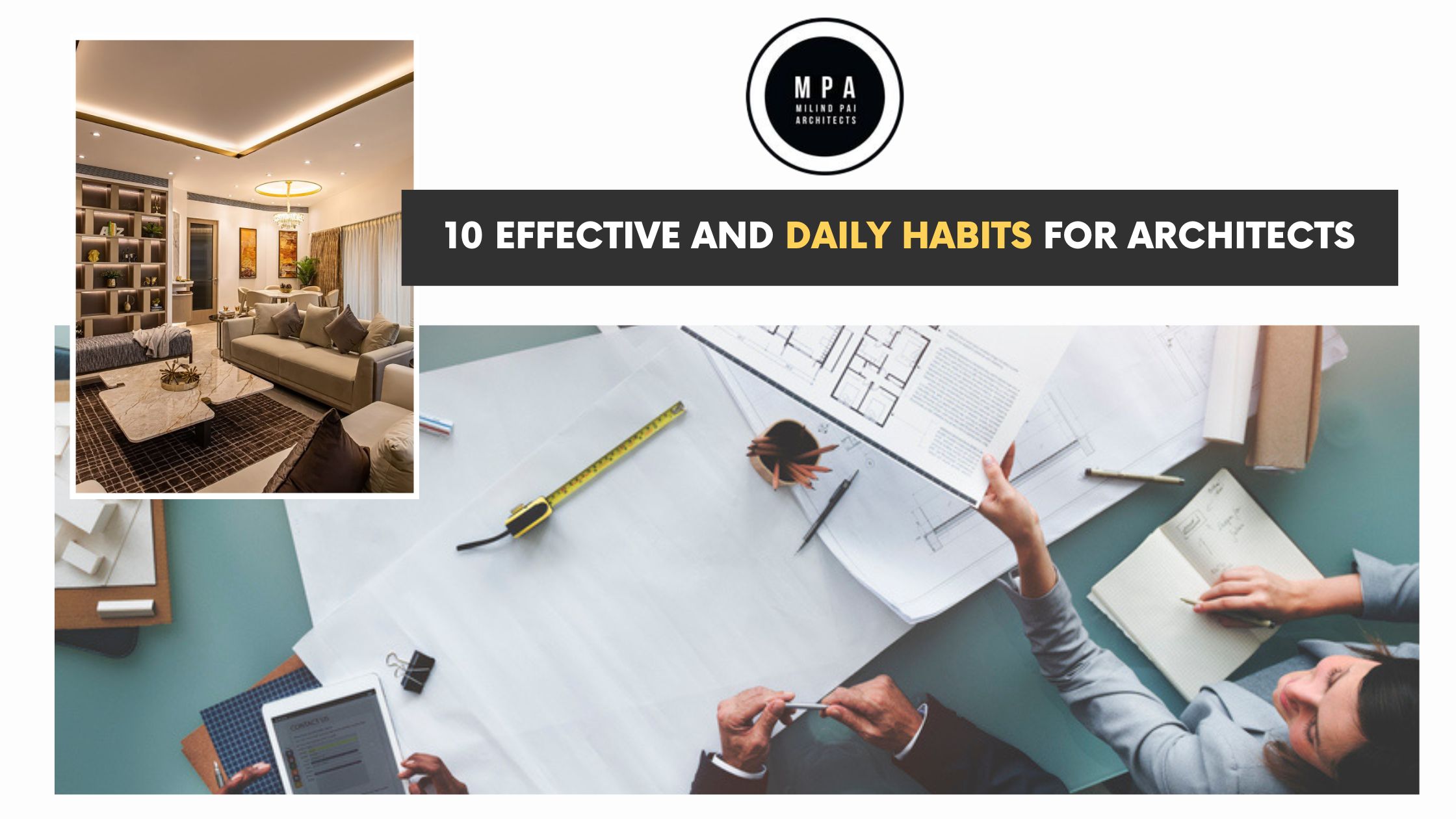Mastering Architectural Excellence: 10 Daily Habits for Success
In the dynamic world of architecture, where creativity meets functionality, success often hinges on the consistent cultivation of productive habits. As architects, our daily routines shape not only our professional performance but also our overall well-being. By integrating effective habits into our lives, we can streamline our workflow, boost creativity, and achieve greater success in our endeavors.
Here, we explore ten essential habits that can empower architects to thrive in their careers and personal lives.
Early Rise and Reflective Mornings: Start the day with intention by waking up early and dedicating time for reflection. Early mornings offer a peaceful environment conducive to brainstorming ideas, setting goals, and planning the day ahead. Use this quiet time to visualize project concepts, sketch designs, or simply enjoy a moment of tranquility before the hustle and bustle begins.
1. Regular Physical Activity:
Prioritize your physical well-being by incorporating regular exercise into your daily routine. Engage in activities such as walking, jogging, yoga, or cycling to rejuvenate your body and mind. Physical exercise not only boosts productivity and creativity but also reduces stress, enhances mood, and improves overall health, enabling you to perform at your best in both professional and personal spheres.
2. Effective Time Management:
Master the art of time management to optimize productivity and minimize stress. Use tools such as calendars, to-do lists, and project management software to prioritize tasks, set deadlines, and allocate time effectively. Break down complex projects into manageable tasks, delegate responsibilities when necessary, and avoid multitasking to maintain focus and achieve optimal results.
3. Effective Communication Skills:
Hone your communication skills to effectively convey your ideas and concepts to clients, colleagues, and stakeholders. Practice active listening, clarity in speech, and empathy in understanding the needs and preferences of others. Whether presenting design proposals, collaborating with team members, or negotiating project requirements, clear and concise communication is essential for successful outcomes.
4. Daily Sketching Practice:
Cultivate your artistic skills through daily sketching exercises. Whether it’s pencil and paper or digital tools, dedicate time each day to sketching architectural concepts, exploring new ideas, or refining existing designs. Sketching not only hones your visual communication skills but also serves as a valuable brainstorming tool, helping you generate innovative solutions to design challenges.
5. Organized Workspace:
Maintain a clutter-free and organized workspace to foster creativity and productivity. Invest in ergonomic furniture, storage solutions, and digital tools to optimize your work environment. A tidy workspace not only enhances efficiency but also cultivates a sense of calm and focus, enabling you to channel your energy into innovative design solutions.
6. Creative Breaks and Inspiration:
Embrace moments of rest and rejuvenation to replenish your creative energy. Take regular breaks throughout the day to step away from your work, engage in hobbies, or explore sources of inspiration. Visit art galleries, museums, or architectural landmarks to stimulate your creativity and gain fresh perspectives. By allowing yourself time to recharge, you’ll return to your work with renewed enthusiasm and insight.
7. Continuous Learning:
Embrace a growth mindset by committing to lifelong learning. Stay updated on the latest architectural trends, technologies, and design principles through workshops, seminars, and online courses. Allocate time each day for reading architectural journals, exploring case studies, or engaging in skill-building exercises to expand your knowledge base and stay ahead of the curve.
8. Collaborative Networking:
Build and nurture professional relationships within the architectural community through networking and collaboration. Attend industry events, join professional organizations, and participate in online forums to connect with fellow architects, designers, and industry experts. Collaborative networking not only fosters knowledge sharing and skill development but also opens doors to new opportunities and collaborations.
9. Reflective Practice:
Cultivate a habit of reflection to assess your progress, learn from experiences, and continuously improve your skills. Set aside time at the end of each day to review your accomplishments, challenges, and lessons learned. Identify areas for growth, celebrate achievements, and adjust your strategies as needed to stay on track toward your professional goals. By embracing a culture of reflective practice, you’ll evolve as an architect and elevate the quality of your work over time.
10. Plan for Future Needs:
Anticipate future changes and evolving needs when planning your home interiors. Allow flexibility in your design to accommodate growth, lifestyle changes, and technological advancements over time.
In conclusion, cultivating effective daily habits is essential for architects seeking to excel in their careers and lead fulfilling lives. By incorporating practices such as early morning reflection, continuous learning, organized workspaces, regular sketching, physical activity, time management, collaborative networking, creative breaks, effective communication, and reflective practice, architects can enhance their productivity, creativity, and overall well-being. Through consistent effort and dedication, these habits can empower architects to achieve greater success and make a meaningful impact in the field of architecture.
From Concept to Creation, Our Interior Designers Are Here to Make Your Dream Space a Reality. Call on 022 – 26732274/ +91 80823 20002 and Get in Touch!

